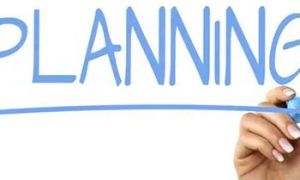

ANZAC Day is commemorated on 25th April and is one of the most important national commemorative occasions in Australia, marking the anniversary of the first major military action fought by Australian and New Zealand armed forces during World War One. Learning about ANZAC Day helps young children to understand the life and times of Australia and its people. The ceremony and traditions are such an integral part of our culture that it gives us an opportunity to talk to children about the importance of ANZAC Day.
In Victoria, children from 3 years old will learn about gender equality in a state-funded playgroup program.
It is reported that Teachers and Early Childhood Educators are finding that children are struggling with basic literacy.
You have a new child starting in your room, their excited, their parents are happy and the family seems to be settling in well with the centre environment. The first day has come for the child to start, parents say goodbye and then the child starts - screaming, crying, pulling, begging their parent not to leave.
At this point preschoolers begin to interact effectively with others. Play becomes more innovative and organized and “boyfriend” or “girlfriend” begins to emerge. Preschoolers have developed an understanding for other’s feelings and become more sensitive. They will also want to be given more responsibility and enjoys helping out with chores... basically at this stage a preschooler is a mini adult.
Preschoolers enjoy talking and are happy to tell their ideas or what they're thinking. They combine words with gestures and facial expressions to make their stories more believable and interesting. Words begin to flow easily and with little effort. During this age, preschoolers will have an endless amount of questions and seeks more detailed information about events or topics that interest them.
At this age, preschoolers make big progress in gross motor skills such as running, jumping, balancing and climbing. Their movement becomes agile and more controlled and learning ability also begins to increase. This enables preschoolers to take part in a variety of activities.
Preschoolers continued progress with fine motor skills depends on the stimulation and encouragement they receive on a daily basis. Improvements typically occur steadily between this age and preschoolers begin to complete small tasks that they couldn't do earlier. Such as cutting with a knife, holding a pencil correctly etc.
Your preschooler is now able to focus their attention more accurately and is less influenced by distractions. The intensity of questions increase as your child develops a strong curiosity for the world around them. By this stage, your child will have increased memory skills which counts for a big part of their learning. Your preschooler will also be able to retain two or three pieces of information while acting on them.
Attention deficit hyperactivity disorder (ADHD) is a psychiatric disorder of the neurodevelopmental type in which there are significant problems of attention and/or hyperactivity and acting impulsively that are not appropriate for a person's age. These symptoms must begin by age six to twelve and be present for more than six months for a diagnosis to be made. In school-aged children the lack of focus may result in poor school performance. This article gives you info on ADHD in Children.
 As an Educator in Australia, your pay rate falls under the Children’s Services Award 2010. This award states the minimum amount that an employer can… Read More
As an Educator in Australia, your pay rate falls under the Children’s Services Award 2010. This award states the minimum amount that an employer can… Read More
 When working as a qualified Early Childhood Teacher (with a university degree) within a service, your rate of pay will come from the Educational Services… Read More
When working as a qualified Early Childhood Teacher (with a university degree) within a service, your rate of pay will come from the Educational Services… Read More
 When working as a Diploma Qualified Educator your pay rate is from the Children's Services Award 2010. This Award states your minimum rate of pay… Read More
When working as a Diploma Qualified Educator your pay rate is from the Children's Services Award 2010. This Award states your minimum rate of pay… Read More
 When working as a Cert 3 Qualified Educator, your pay rate is from the Children's Services Award 2010. This Award states your minimum rate of… Read More
When working as a Cert 3 Qualified Educator, your pay rate is from the Children's Services Award 2010. This Award states your minimum rate of… Read More
 Educational Leaders play a crucial role in their early childhood service by ensuring that the educational program aligns with best practices and supports the holistic… Read More
Educational Leaders play a crucial role in their early childhood service by ensuring that the educational program aligns with best practices and supports the holistic… Read More
 With the new national child safety reforms kicking in on 1 September 2025, early childhood services like yours have a real opportunity to lead the… Read More
With the new national child safety reforms kicking in on 1 September 2025, early childhood services like yours have a real opportunity to lead the… Read More
 In early childhood education and care, ratios are more than a technicality—they are a frontline safeguard. Every child deserves responsive supervision, emotional connection, and developmental… Read More
In early childhood education and care, ratios are more than a technicality—they are a frontline safeguard. Every child deserves responsive supervision, emotional connection, and developmental… Read More
 Here’s a comprehensive Mobile Phone and Smart Watch Policy tailored for early childhood education and care (ECEC) services in Australia, aligned with the latest 2025… Read More
Here’s a comprehensive Mobile Phone and Smart Watch Policy tailored for early childhood education and care (ECEC) services in Australia, aligned with the latest 2025… Read More
 The Sea of Fish Challenge is a national initiative that invites children, educators, families, and communities to create and display fish artworks as a symbol… Read More
The Sea of Fish Challenge is a national initiative that invites children, educators, families, and communities to create and display fish artworks as a symbol… Read More
 Cold weather play is incredibly beneficial for early childhood development! It helps children build resilience, strengthen their immune systems, and develop essential motor skills. Here’s… Read More
Cold weather play is incredibly beneficial for early childhood development! It helps children build resilience, strengthen their immune systems, and develop essential motor skills. Here’s… Read More

The "Health" theme introduces children to essential practices like washing hands, brushing teeth, and eating balanced...
See more...
In early childhood education, observation and planning cycles are meant to illuminate learning—not drown educators...
See more...
The following provides practical examples of critical reflections in early childhood education, drawn from real-world...
See more...© 2009-2025 Aussie Childcare Network Pty Ltd. All Rights Reserved.

